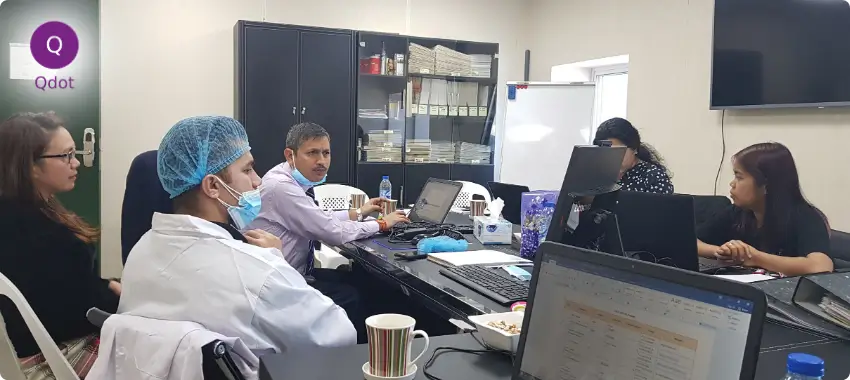
ISO 22000:2018 Internal Auditor Training course is crucial for ensuring an organization's effective implementation and maintenance of the food safety management system.
The knowledge and abilities gained from this course empower auditors to evaluate and confirm that the food safety management system conforms with the ISO 22000:2018 standard. Internal auditors can ensure that food safety procedures are robust and efficient by learning auditing techniques and using them to identify potential risks and opportunities for improvement.
Objective Of Internal Auditor Training
This course aims to refresh and review the structure and basic requirements of ISO 22000. It equips participants with the practical skills to plan and conduct internal audits, thereby improving the effectiveness of FSMS and adding value to the organization. It also helps participants enhance their auditing skills and demonstrate compliance with the standard's requirements.
Learning Outcomes Of Internal Auditor Training Course ISO 22000:2018
- Introduction to ISO 22000:2018 background & history
- Concept of food safety
- Food safety management system & its benefits
- Concept of HACCP, Risk & Hazard
- Concept of the process approach
- Overview of basic requirements of ISO22000:2018 & its interpretation
- Introduction to auditing: definition, types of audits
- Phases of audit: audit planning, audit preparation, audit performance & review, audit reporting & audit
Prerequisites for this training course include a basic understanding of food safety management systems and familiarity with ISO standards.
- Delegates who wish to become competent internal auditors for FSMS
- Delegates want to have detailed knowledge of implementing FSMS in their organization
- Persons managing first and second-party FSMS audits within their organization
- Consultants of FSMS
Benefits Of ISO 22000:2018 Internal Auditor Training Course For Your Business
The ISO 22000:2018 internal auditor training course offers several significant benefits to different roles within a business aiming to implement and maintain a robust food safety management system (FSMS). For internal auditors, it ensures a comprehensive understanding of ISO 22000:2018 requirements. It provides managers with the skills to manage first and second-party FSMS audits effectively. It enhances consultants' ability to advice on FSMS implementation and maintenance.
- Internal auditor training ensures that participants understand the requirements of this standard.
- It helps internal auditors conduct audits effectively, ensuring that all areas of the FSMS are assessed comprehensively.
- The focus of this training program is risk-based thinking, which helps auditors recognize possible threats to food safety and suggest alternatives.
- It trained the participants to identify opportunities for enhancing the effectiveness of the FSMS.
- It increases the skills in auditing techniques, communication, and problem solving.
- FSMS Internal Auditor training provides knowledge to prevent potential food safety incidents and non-compliance issues.
- Having internal auditors with training shows stakeholders, clients, and authorities that the company is dedicated to upholding high standards. FSMS.
Course Duration:
2 Days
Methodology:
The course is delivered over two days and uses various teaching methods, including classroom lectures, interactive workshops, case studies, and individual & group exercises. This method ensures that students understand the course material on a theoretical level and acquire real-world experience using what they have learned.
